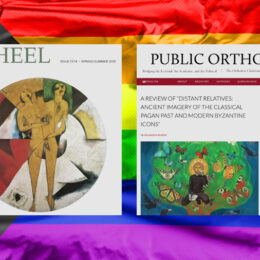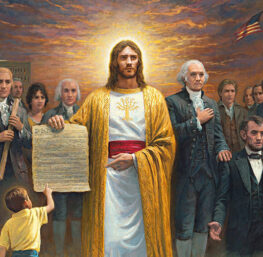BreakPoint | Stephanie Bennett | Aug. 22, 2008
It used to be that people were known for being heroes. Doing something noble or worthy of praise would be reason for someone’s popular acclaim, but with the advance of mass media, a new phenomenon arose within American culture. People began to be known—just for being known. In media studies we’ve come to know this phenomenon as the rise of the celebrity.
Today, people famous for being famous are not simply celebrated; they are part of an entertainment culture that increasingly sets the tone for the values we espouse as well as those we project out into the wider world. Unfortunately, whether or not we personally adhere to the values of celebrity culture, we are influenced by them in many ways. Whether through obvious temptations, endless amusements and distractions, obsession with our “looks,” the frittering away of our time, or the slow and seemingly innocuous stream of a carnal images and ideas, our lives are increasingly shaped by the entertainment culture in which we live. It is an environment. We are in its bubble.
Knowledge of the entertainment culture is even more disconcerting as we consider that our collective footstep is deeply entrenched in the mire of media exploitation. As Americans, we are seen and perceived through media portrayals. But that is a subject for another day.
Celebrity culture came to a high pitch with the introduction of the television to our society, but it started long before that. Today’s hyper-fascination with Anna Nicole’s baby, Tom Cruise’s Oprah incident, or the grueling and overplayed escapades of Britney Spears, comes on the heels of the many reinventions and exploitation of earlier celebrated entertainers such as Marilyn Monroe, Elvis Presley, and countless others. Prior to television were the silent pictures, the radio age—and mass media in general—all of which became a catalyst to provide the populace with a false sense of “knowing” others.
There are many theories on the subject of celebrity culture, but one of the most compelling is known as “parasocial theory” which involves the way identification with unknown others became common with mass media into the cultural milieu. Along with the recreational joys of making film and television, and finding creative new ways of story-telling and artistic expression, the mass media have been linked to several unforeseen consequences of cultural malaise, one of which is strongly tied to what has come to be known as the cult of celebrity.
With that, the concept and experience of “intimacy” completely changed. Largely through the vehicle of television, people became privy to the details of the private lives of strangers. Through the technological innovations on screen, actors, news anchors, and public figures could now be represented by an image of themselves, which is always something more (or something less) than reality. These media representations provided a view into human relationships and personal identity that was “made for TV.” High drama, cropped frames, careful shot selection, close-ups of facial expression—all these techniques served to slowly change public perception of what it meant to be close. But instead of “up close and personal,” we became distant and mediated.
This experience is something far different from the personal experience of knowing or the story-telling tradition that protects the idea of mystery and places the individual imagination at the center of our ability to know others. With the advance of the Internet, particularly in blogging, YouTube, and the expansion of digital formats, this propensity to become psychologically attached to those we don’t really know has increased. We seem to know everyone, but do we really “know” them? Are we involved in their lives, or do we simply know more about their lives?
[…]
With the emergence and ensuing immersion of this entertainment culture onto the American landscape, the Church finds itself in the unique position of offering people something entirely different from the celebrity-soaked emphasis on the material world: the Gospel.
Yes, the Gospel. No new version, just pure, simple, free, and without bells and whistles—the Gospel of our Lord Jesus Christ. What the Creator of the universe has made available to the world through Christ is the same yesterday, today, and forever. The love that God has poured out requires no marketing plan or celebrity testimonials to keep it relevant. His love does not require a fresh-new-American-twist to make sure the media picks it up and turns it into another venture in entertainment.
Yet instead of setting the pace for the purity of expression and advancing the Gospel by allowing the church to be the church, American Christianity has—by and large—bought a front-row ticket to the cult of celebrity. And like so much else in the past century, Christianity has found itself imitating the world instead of leading the way out of the confusion.
. . . more



